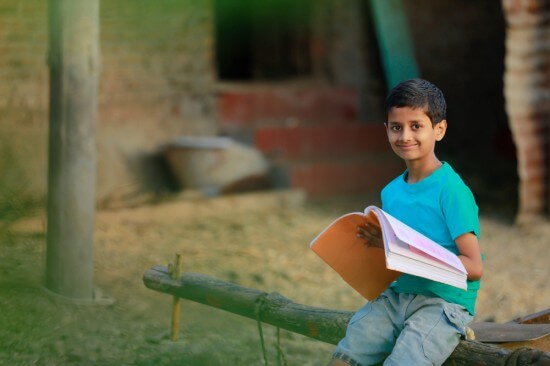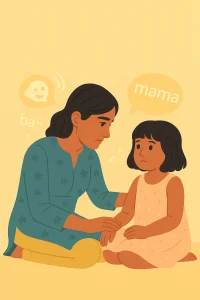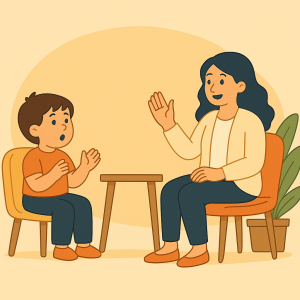Disabilities and Behaviours in Underachievers
By Prapoorna M
Last Updated: November 26, 2021
“A child is a fire to be lit but not a vase to be filled” is the famous quote that says how to treat a child. Children are encouraged to learn naturally. Whatever they witness, they try to think and interpret in their own way. Kids are enthusiastic beings. But when we see some kids not concentrating enough or not intelligent enough to grasp the things taught to them, we term them as Underachievers. Their ability to learn is actually far better than what we understand superficially. But they cannot really be achievers at times. Why does this happen?
Generally, children want to achieve. Some do not because they cannot learn the way the material is usually taught. Others cannot sit still because of undetected problems. Some cannot because of their temperaments and attitudes. Underachievement is a symptom with multiple causes. The first step is to identify the sources of underachievement.
Students underachieve for a variety of reasons, the least of which is because they are lazy, difficult or unteachable. The challenge for each and every teacher/parent is to find the individual key that unlocks a child’s motivation to succeed and build on that foundation.
Individual Problems
There can be several sources of underachievement within the individual but mention is being made of specific sources like undetected learning disabilities, temperaments and behavior of children and poor handwriting.
Undetected learning disabilities
Learning disabilities are common all over the world. Many learning disabilities become obvious when a child is in preschool while others may go undetected till elementary or middle school. Some common behaviors that may indicate a learning disability include problems with reading, speech, writing or reasoning; hyperactivity; inability to focus and coordination problems.

Children with a learning disability may display impulsiveness, frequent frustration, difficulties with interpersonal interactions and unpredictable test performance. Children with learning disabilities often have above-average intelligence. They just process information differently. With intervention, the majority of these children succeed academically, socially and personally.
Identifying Problems at Different Ages
The following is a breakdown of general warning signs that are often associated with learning disabilities at different stages of a child’s development. Although many of these behaviors are common, a child who exhibits several of these signs may very well have a learning disability and
should be seen by a professional.
Preschoolers
- Difficulty mastering language – The child begins to talk late, has trouble pronouncing words, is slow to use new vocabulary words and is often unable to find the right words.
- Trouble with simple rhymes, numbers, letters and the days of the week.
- Restlessness – The child is very active, restless and unable to focus on craft activities, games or a simple task.
- Difficulty interacting appropriately with peers – The child becomes angry, over-excited or withdrawn around other children.
School-age Children
- Finds difficulty in making the connection between letters and their sounds. The child repeatedly makes the same mistakes in reading like spelling and pronunciation errors.
- Often alters letters, numbers and whole words
- Confused by the concept of time
- Finds new skills hard to learn.
- Covers up lack of knowledge with elaborate memorization
- Poor planning and organizational skills.
- Exhibits lack of coordination and disregard for physical surroundings.
Common Learning Disabilities
- Dyslexia – a language-based disability in which a person has trouble understanding words, sentences, or paragraphs.
- Dyscalculia – a mathematical disability in which a person has a very difficult time-solving arithmetic problems and grasping math concepts.
- Dysgraphia – a writing disability in which a person finds it hard to form letters correctly or write within a defined space.
- Auditory and Visual Processing Disabilities – a sensory disability in which a person has difficulty understanding language even with normal hearing and vision.
- Autism – Autism is also known as Autism spectrum disorder or ASD. Children with autism have social, communication and language problems. These children will have restricted and repetitive patterns of behavior, interests or activities. Autism can be mild to severe and the symptoms may vary from child to child.
- ADD/ADHD – Attention Deficit Disorder (ADD) and Attention Deficit Hyperactivity Disorder (ADHD) – While these two attention disorders are now well known, their widespread recognition also makes it more likely that a child may be misdiagnosed or receive inappropriate treatment.
ADD or ADHD:
The warning signs for ADD or ADHD include making careless mistakes in schoolwork, problems playing quietly, not listening to what is being said in class and at home, losing and misplacing belongings, having difficulty paying attention to tasks, inability to organize or prioritize tasks, difficulty sitting still and interrupting and talking excessively. Although most children exhibit these behaviors from time to time, children with ADHD exhibit these signs to an extreme. No one knows what causes ADD or ADHD. Some research suggests that individuals with ADD have a different brain metabolism. Evidence also supports the idea that ADD is inherited and not a result anything that occurred during pregnancy, the birth process or as a result of poor parenting.
There is no quick treatment for ADD and ADHD, but the problems can be managed by learning everything about the disorder finding out what techniques would help manage the child’s behavior creating an educational program to fit the child’s needs and exploring the possibility of medication. Successful management of ADD or ADHD requires the support of parents, schools, counselors and medical doctors. With early intervention and continued support of the child and the whole family. Individuals with ADD or ADHD can manage their disorder and become happy and productive adults.

Behavior
There can be numerous behaviors which form the sources of underachievement. A few specific behaviors that are described below include behavior towards parents, competition, and challenge.
Passive-aggressive behavior towards parents
Children use passive-aggressive ways of getting back at parents whose expectations are too high. Passive-aggressive behavior is adopted by children to deal with an unreasonable authority figure like a parent or a teacher. Children who do not have the option of fighting with the parents, cannot be happy about obeying with the unreasonable requests and therefore learn to fight against them in indirect ways. The signs of passive-aggressive behavior include forgetting or misplacing important things, avoiding responsibility for tasks, believing that they are doing a much better job than parents think, perform poorly, verbally obey but behaviorally delay and complain that everyone is making unreasonable demands.
Tips for parents to reduce passive-aggressive behavior
Keep calm
If the child shouts or gets angry, do not get mad. Be willing to accept the anger when it is expressed. Remain calm and let him know that you understand and are willing to help him/her deal with his/her feelings. This lets them feel the freedom of expression through which you can actually understand a lot, both verbally and non-verbally.
Talk to the child
From an early age, talk to your child about anger and their feelings. Educate them about passive aggression. Talking to your child personally, makes them feel the warmth of your love and that creates a perfect ambience for grasping whatever you say.
Monitor the progress
Help your child make gradual progress, without expecting too much too soon. If the child is doing right, set a slightly higher goal for the next time. Keeping goals should make them feel enthusiastic but not stressful. Having an interesting goal is itself a booster to perform well.
Praise efforts
Positively praise your child for his/her effort, regardless of how small of an achievement it is. It raises his/her self-esteem and makes your child an active part of the family. Let the child know that his/her opinion is always welcome and that he/she plays an important role within the family. Occasionally let him/her make decisions as to what to eat or where to go, showing him/her that her choices matter.
Become a role model
The most effective way for children to learn to acknowledge and accept angry feelings is to role model this for them on a daily basis. Parents who role model assertive anger expression and practice direct communication of feelings can teach their children effective ways to express emotions.
Withdrawing from competition
Underachievers tend to select only those activities in which they feel confident they’ll be winners. They often declare that they are good losers. Losing experiences make them feel like losers. When they encounter anything difficult they quit, drop or choose something else.
Back off from challenge
Gifted students may become underachievers when the grade level curriculum does not challenge them and meet their needs. If a gifted student is only presented with work and concepts he or she already knows the student will soon decide that the school is “boring” and really is not the place to learn anything new. This attitude often leads to underachievement.
Both the parents and the teachers play an important role in the development of a child. A good parent-child relationship can really help. An expert help in taking a Parental counseling, can help you deal better with your children. In case, you have an issue in your family or relationships, having an expert opinion on how to deal with, makes your life even better. If you can eliminate all the possible uncomfortable conditions both at home and at school, your child will definitely become a super achiever.
Book your Free Consultation Today
Parent/Caregiver Info:
Client’s Details:
* Error Message







